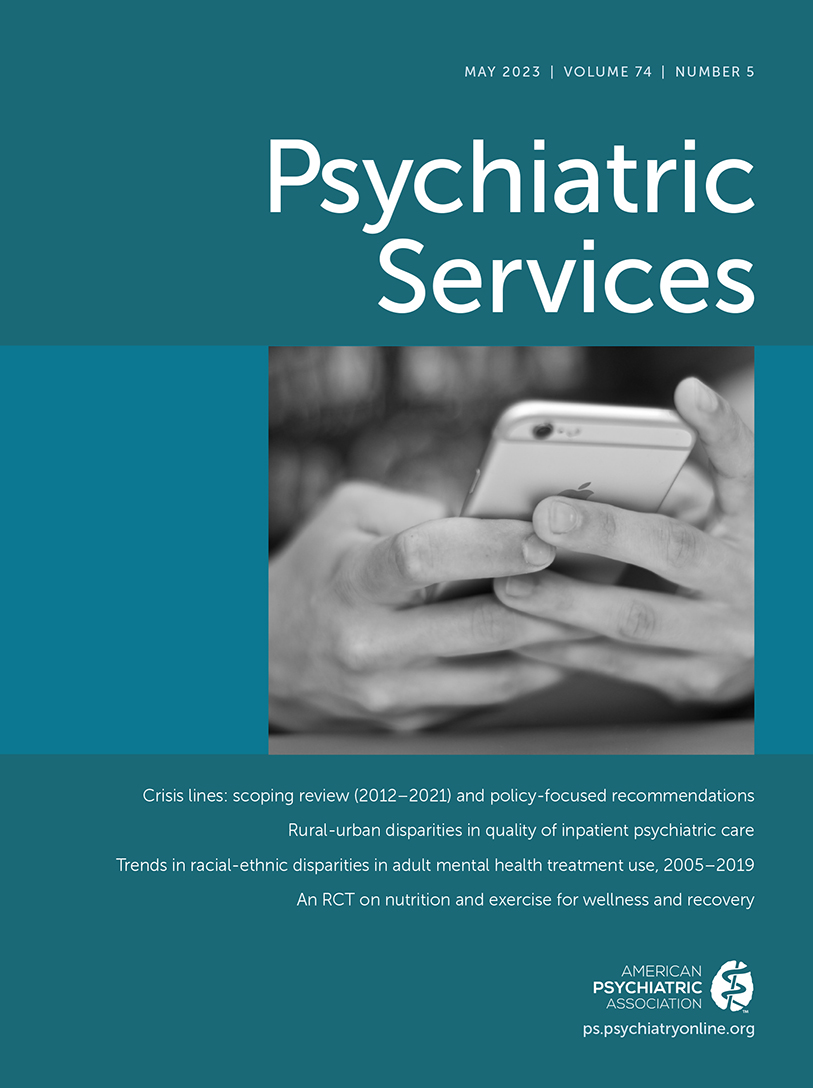Outcomes of Peer-Provided Individual Placement and Support Services in a Mental Health Peer-Run Vocational Program
Abstract
Objective:
The authors sought to determine whether staff at a peer-run agency could deliver supported employment services with high fidelity to the individual placement and support (IPS) model and whether employment outcomes of peer-delivered IPS plus work-specific health promotion were superior to usual supported employment services.
Methods:
Two teams from a vocational program of a large peer-run agency were studied from July 2015 to July 2017. One team received training and supervision in delivering IPS plus employment-focused physical wellness support and mentoring. The other team continued providing usual supported employment services. Study data included vocational outcomes from 348 clients served by the two teams (IPS, N=184; comparison condition, N=164) and the results of IPS fidelity reviews of the IPS team at study baseline, midpoint, and end. The authors modeled the primary outcome of competitive employment with random-effects logistic regression and adjusted propensity scores for age, gender, race, ethnicity, education, and months of service receipt.
Results:
Following training, the IPS team demonstrated acceptable and increasing fidelity to the IPS model, achieving “good fidelity” by the end of the 25-month observation period. Among IPS recipients, 43% achieved competitive employment versus 21% of comparison recipients (p<0.001). Multivariable analysis indicated that IPS recipients were significantly more likely to achieve competitive employment than individuals in the comparison group (OR=4.06, p<0.001).
Conclusions:
Providing training in IPS along with health promotion to the behavioral health peer workforce may help address the severe shortage of IPS services and enhance the competitive employment outcomes of people served by peer-run programs.



